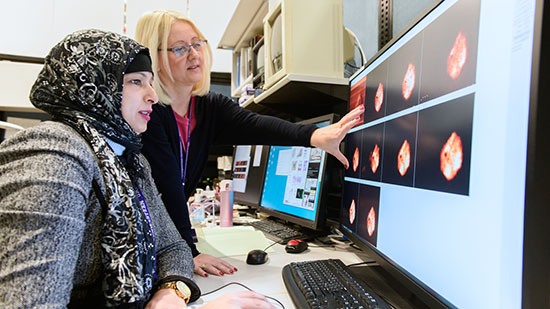Gynecologic Cancers
Gynecologic cancer is any cancer that starts in a woman's reproductive organs. Five main types of cancer affect a woman's reproductive organs are cervical, ovarian, uterine, vaginal and vulvar. As a group, they are referred to as gynecologic cancer. A sixth type of gynecologic cancer is the very rare fallopian tube cancer.
The five gynecologic cancers begin in different places within a woman's pelvis, which is the area below the stomach and in between the hip bones. Each gynecologic cancer is unique, with different signs and symptoms, different risk factors and different prevention strategies. All women are at risk for gynecologic cancers, and risk increases with age. When gynecologic cancers are found early, treatment is most effective.
Browse the list to the right for more information on some of the specific types we treat.







